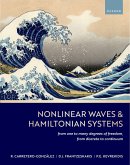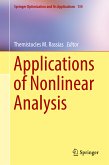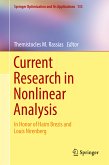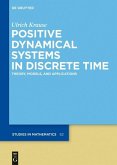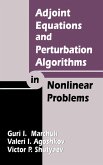This study of Schrodinger equations with power-type nonlinearity provides a great deal of insight into other dispersive partial differential equations and geometric partial differential equations. It presents important proofs, using tools from harmonic analysis, microlocal analysis, functional analysis, and topology. This includes a new proof of Keel-Tao endpoint Strichartz estimates, and a new proof of Bourgain's result for radial, energy-critical NLS. It also provides a detailed presentation of scattering results for energy-critical and mass-critical equations. This book is suitable as the basis for a one-semester course, and serves as a useful introduction to nonlinear Schrodinger equations for those with a background in harmonic analysis, functional analysis, and partial differential equations.
Dieser Download kann aus rechtlichen Gründen nur mit Rechnungsadresse in A, B, BG, CY, CZ, D, DK, EW, E, FIN, F, GR, HR, H, IRL, I, LT, L, LR, M, NL, PL, P, R, S, SLO, SK ausgeliefert werden.



